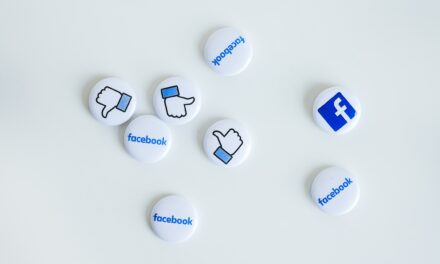More than 90% of people under the age of 50 in the UK have a smartphone. It will soon be more or less impossible to find somebody who does not own an iPhone, Android or equivalent. It is difficult to even navigate through university now without a smartphone and social media as students rely on Facebook to join societies and sports teams and hear about social events.
Our dependency on smartphones and social media reached a new high throughout the Covid-19 pandemic. The magic screen which is rarely out of our hands was often the only way to contact our friends and families. I cannot be the only one who has been sickened by the weekly notification which told me how many hours I spent on my phone. As our endless free time filled up with Zoom quizzes, online courses and partaking in whatever social media challenge was trending that week, aimless scrolling through timelines and feeds increased drastically. Everybody has been tuned in, waiting for the next political scandal to occupy their time whilst we have been stuck indoors.
From Dominic Cumming’s eye test in Barnard Castle and Professor Neil Ferguson’s secret trips to meet his married lover, to debating whether Rishi Sunak’s mug is maybe a little bit too expensive – we are guilty of having opinions on political figure’s personal life choices now more than ever. Whatever your opinion on these three stories, they would not have become as huge topics of conversation if we were not in lockdown and focusing on the Westminster bubble reality show.
Our nation is usually divided in two at this time of year – those who are glued to the TV every evening watching beautiful young men and women finding love in a villa in Mallorca, and those who ‘would never watch such drivel’ (come on, we know that if you’ve never given Love Island a chance, you’re simply scared of becoming as addicted to it as the rest of us). The 2020 summer series is the first to be cancelled since the show came back to our screens in 2015. For once, there has been no British reality TV. Instead of the Love Island villa, the country has been watching No.10 Downing Street for the latest changes to government guidelines and how our nation was getting on through the international health crisis. People have never been as tuned into politics as they are now.
It is not normal to hear directly from the government in a daily press conference. Our Ministers are constantly on our TVs, radios and phone screens during the 24-hour news cycle. Their faces are now familiar and their names are thrown – sometimes shouted – across dinner tables up and down the nation. They are our new reality stars whilst we are living through the challenges of this new, unknown way of life together – and many of us are looking to our elected representatives for reassurance and advice.
Social media has bridged the gap between the public and those in power. By replying to politician’s tweets, commenting on Facebook posts or liking an Instagram photo, members of the public feel connected to their MP or Ministers in a whole new way. MPs are no longer figures that you write to formally or occasionally see on the news and at community events, their profiles are now intertwined within your own social media networks of friends, relatives, colleagues and your favourite celebrities. This makes constituents feel closer to their MP as they seem as accessible as their friends. Digital interaction with politicians has increased dramatically during the pandemic. This has been increasingly noticeable in MPs email inboxes as some offices have seen up to a 1200% rise in constituent correspondence. In the age of social media influencers, it is understandable why people expect to have regular updates from their politicians. They want to see that their elected officials are normal people – and in such unprecedented times, they want to see that their MP is going above and beyond to ensure that their communities are safe.
Social media influencers have enormous followings and, as it says on the tin, they really do influence people. To make a comparison – Boris Johnson has 2.9 million followers on Twitter whilst a former Love Island participant – not even the winner – has 4.3 million followers on Instagram. One of these audiences is exposed to intense advertisements in a one-way communication network, the other is looking for conversation and debate on current affairs and policy issues. Amongst those 4.3 million followers, there are young women spending thousands of pounds to change their appearance in order to be as ‘desirable’ as the influencers who they follow. Beyond the usual topics of conversation like the environmental costs of fast fashion, there are a huge number of young people who travel abroad to undergo all kinds of cosmetic surgery as it is cheaper than in the UK. Whilst this is a conversation for another day, it is one of a multitude of issues which I believe will only become topics of debate as the younger generation emerges as our future leaders. Young people are living through this social media, digital age as a guinea pig generation and the damages caused to mental health, I fear, will only become apparent in the future.
There are plenty of negative aspects of social media which we should not ignore, but there are undoubtedly many positives which come from young people growing up on social media. We now have a natural ability to create a personal brand and market ourselves to an audience. Instagrammers, TikTokers and YouTubers can create endless streams of monetised content. It is a huge industry and it is powerful. The majority of these people are creating their content at home with no professional training because tutorials for graphic design can be found online. We all have the ability to create a personal brand at our fingertips. We can be the person who we want to be and we can shape an audience’s perception of ourselves with our online content.
There are several examples of MPs who have a natural ability to use social media effectively and on a personal level. Esther McVey, Ben Bradley and James Cleverly are great examples from our returning MPs, whilst Dehenna Davison, Joy Morrissey and Alicia Kearns stand out as brilliant communicators from the new intake. Taking Dehenna as an example – she has thrown herself into her role as an MP, but her natural ability to use social media to communicate with her constituents and members of the Conservative Party has set her out in a way which most likely just comes naturally to her. She has made politics accessible for young people who may not have felt that they had a comfortable place in the Conservative Party. Whilst typical social media influencers use their power to sell products online, Conservative MPs have the opportunity to use the same skills of personal branding and high-quality content creation to have an influence over voting behaviours, as well as to influence other young people from outside the usual Westminster bubble to get involved in politics.
So, when we plan to ‘level up’ our country, why shouldn’t MPs level up their social media presence? I know the typical arguments against more social media use. We’ve all heard the stories of MPs who have used platforms inappropriately and whether using Twitter makes a difference to the work which happens in Parliament, but when it is now so easy to navigate social media to communicate your messaging, photos, videos and policy ideas for your local area directly into the magic square in your constituent’s hand, why aren’t all MPs using these tools to their advantage?
If constituents have or feel as though they have a direct point of contact to their powerful representatives because of regular well-crafted tweets or high quality, behind-the-scenes style videos, why shouldn’t MPs double down on levelling up their social media game?





